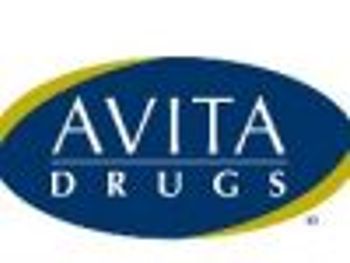
A protein found in nearly half of African Americans speeds removal of medication from the body.

A protein found in nearly half of African Americans speeds removal of medication from the body.

Experimental drug results in 100% recovery in primates up to 5 days following infection.

Medicaid beneficiaries are more likely to be screened for 3 types of cancer in states where physicians receive higher payments for office visits, a study suggests.

Phase I study deems treatment safe and tolerable in humans.

Treatment co-developed by National Institutes of Health and GlaxoSmithKline gets fast-tracked as World Health Organization issues dire prediction.

Michael Nameth, RPh, MBA, chief executive officer of Aureus Health Services, discusses the evolving role of the mid-size specialty pharmacy.

Limitations in available staff and protective equipment put medical personnel at increased risk.

First-in-class treatment option available for severe aplastic anemia patients who had insufficient responses to immunosuppressive therapy.

Examining infliximab dose escalation rates could help maximize cost-benefit treatment algorithms.

Efficacy of treatment still undetermined as World Health Organization raises cost of battle strategy.

Treatment reduces annualized bleed rates in the treatment arm compared to the on-demand treatment arm.

A different Ebola strain reported in the Congo as researchers race to find a vaccine.

Specialty therapies for rheumatoid arthritis, multiple sclerosis, and breast cancer tended to have positive functional and clinical outcomes for patients.

A meta-analysis of clinical trials assessed patient-reported outcomes in participants receiving tocilizumab or anti-tumor necrosis factors.

Aurora to utilize enhanced therapy management services with Armada's ReachRx Online Therapy Management system.

Ceasing treatment may be the only way to determine whether HIV is cured, but doing so carries long-term risks.

Doctors say experimental Ebola drugs should not be limited to well-off patients.

Howard Barsky, chief information officer for Armada Health Care, discusses the benefits of business intelligence software for specialty pharmacies.

Savings from biosimilars may not offer much relief due to development and manufacturing costs, according to Catamaran report.


Promising treatment protects nonhuman primates from Marburg virus up to 3 days after infection.

Former chief counsel and VP of strategic development, and assistant general counsel for Fortune 500 health care provider, to lead new practice area.

The FDA has granted approval to Genzyme's eliglustat (Cerdelga), the only first-line oral therapy for patients with Type 1 Gaucher disease.

Doctors Without Borders says virus cannot be contained without massive mobilization of resources to West Africa.

Avita acquires MedExpress Pharmacy in North Carolina.

Ebola-related death toll climbs above 1200 as health care workers face increased threats from desperate region.

Grocery store chain joins growing list of major companies offering enhanced specialty pharmacy.

FDA stresses that dietary supplements cannot prevent or cure the Ebola virus.

Investigators in Europe have confirmed the effectiveness of prostate-specific antigen screening in reducing the risk of cancer-related mortality and in detecting a larger share of prostate cancer cases.

World Health Organization cautions outbreak could last for several months.